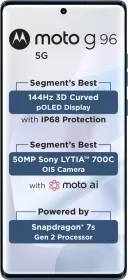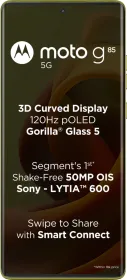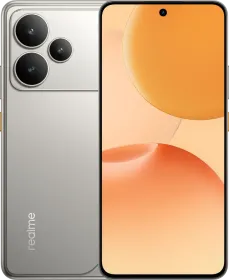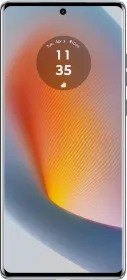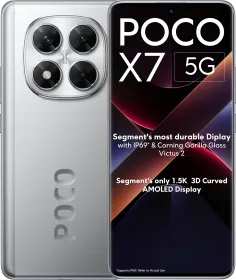EVs are taking over the world by a storm. Electrification of cars is something we didn’t expect to catch on with the rapid pace that it has. And while the rapid growth of EVs also raises many questions, the most important ones remain around the cars’ ability to withstand the test of time. Now, it hasn’t been very long since EVs have been mainstream globally also. I believe not even 10 years have passed since the first adaptation of EVs by the masses.
Now while it is not something that should be read too deeply into, everything starts somewhere, it does raise questions about the longevity of EVs. To make things better and to create a certain sense of confidence in buyers, car brands are offering long warranties for their batteries. Brands are offering anywhere between 8 years to a lifetime of free warranty for EVs in order to convince us that longevity is not an issue with electric cars. But my job is to actually tell you what the real picture is. Before that, let’s look at some of the mainstream brands and the warranty they are offering for their EV batteries.
Tata

Tata, in its Harrier, Curvv and Nexon EVs, was offering users a lifetime warranty, but with caveats. The brand is offering a lifetime warranty with unlimited kilometers and/ or 15 years from the first registration of the first owner. Here are some of the details of Tata’s warranty for the EVs:
Coverage: Unlimited kilometers, 15 years from first registration for first-owner private vehicles.
Second-owner warranty: Reduced to 8 years or 160,000 km.
Applies to: Harrier EV, Curvv EV, and Nexon EV 45.
Terms: Valid on private-owner cars, subject to authorised Tata servicing, maintenance schedule, and no tampering.
MG

For different cars, MG has different warranties for the battery. For example, the newly-launched MG Windsor Pro gets a lifetime warranty, but only for the early buyers of the car. For the MG ZS EV, the brand offers a warranty of 8 years and/ or 1,50,000 kilometres. The smallest EV, the MG Comet, on the other hand, gets 8 years and/ or 1,20,000 kilometres of battery warranty.
Coverage: Lifetime battery warranty for the first batch of purchasers of the MG Windsor Pro. Battery warranty of 8 years or 1,50,000 for MG ZS EV, 8 years and 1,20,000 for the MG Comet.
Second-owner terms: Standard warranty reverts after initial coverage.
Mahindra

For its new EVs, the BE6 and XEV 9e, Mahindra also brought lifetime warranty for initial buyers. Now we are not sure if this lifetime warranty is still in place since Mahindra has sold quite a few units of each product already.
Coverage (BE 6): For first private owners, there is a lifetime warranty on the battery. On resale, the warranty will reduce to 10 years or 2,00,000 kilometers.
XEV 9e: For first private owners, the battery warranty is lifetime, but on resale it will reduce to 10 years or 2,00,000 kilometers.
Kia

Kia has finally launched its first mainstream EV in India. The Carens Clavis EV has been launched at a starting price of Rs 17.99 lakh and comes with a similar 8 year battery warranty as the MG ZS EV. Here, however, we are getting up to 1,60,000 kilometres, which is a notch higher than what MG offers.
Coverage: 8 years and/ or 1,60,000 kilometres as part of the warranty package.
Tesla

The much hyped launch of Tesla in India is also worth mentioning here. Tesla Model Y, which is the company’s first car in the country has been launched with a 4 year or 80,000 kilometre warranty on the vehicle, and an 8 year or 1,92,000 km warranty, whichever is earlier, on the battery.
Coverage: 8 years and/ or 1,92,000 kilometres as part of the warranty package.
Final Takeaway
Tata is offering the best and most long-lasting battery warranty for first-time owners. Given that there aren’t many second-hand EVs on the market yet, this is pretty good for an added level of satisfaction in terms of the longevity of EVs.
Other brands are also giving lifetime warranty, but the issue is that there are caveats like “early buyers.” While this sounds fine on paper, MG sells about 3,000 Windsor’s every month and Mahindra sold over 1,500 EVs last month in June so we can’t be sure how long this “early buyer” warranty will last.
And finally, as far as longevity is concerned, there isn’t enough data to comment on anything. As mentioned at the start of this article, it hasn’t even been a decade since the mass adoption of EVs so we don’t know how long these cars will end up lasting. As far as the current situation goes, there are many EVs even on Indian roads that have done lakhs of kilometers and are still working absolutely fine.Facts That EV Owners Should Know
- Battery degradation is natural; typically a battery degrades by 20–30 percent capacity after 8–10 years. Comprehensive warranties help offset the depreciation due to the battery degradation.
- Replacement costs in India are high and can range from ₹4–6 lakh to up to more than half of the car’s value for large packs, making warranty even more essential.
- From a value-for-money and peace-of-mind perspective, Tata and Mahindra emerge as the top choices in India in 2025, thanks to their extraordinary battery warranties.















